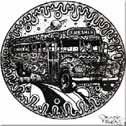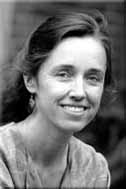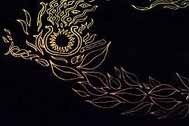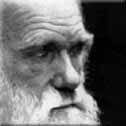|
|
Contrary to the conventional use of language, Darwin was not a strict Darwinian. Though his theory of natural selection, the survival of the most fit, is most closely associated with his name, Darwin believed that biological evolution unfolded following the path of three intertwined processes; natural selection, sexual selection and Lamarckian selection. Darwin believed that sexual selection was largely responsible for many of the features and behaviors in human beings. He also noted the effects of behavior and the environment upon individuals within species, with those individuals passing on those acquired characteristics to the next generation - a form of Lamarckian inheritance. Darwin noted the surfacing of culture in human beings as a possible result of sexual selection. In other words, Darwin was a pluralist. For him evolution occurred in a variety of forms. Though Darwin discovered, named, described and defended his several theories of evolution, he at no time generated a model of how these several theories were related to one another. He did firmly believe that his theory of natural selection was the foundation and most important part of how evolution operates. It is not a surprise that a huge percentage of the disagreements among evolutionary theorists over the last 140 years relates to the relative importance of Darwins three theories - different theorists emphasizing different virtues among the three. I suggest that Darwins foundation theory, natural selection, can be used to explain the evolution of the selective processes themselves, taking Darwin a deeper level down, and placing his several theories in a clearly defined branching family tree. This is a meta-theory or theory that explains theories. Natural selection states that since species produce far more individuals than can survive to procreate, and that those individuals have different features, features randomly produced and inheritable, then the individuals that manage to grow to adulthood and procreate will populate the environment with progeny with those same features.The single most important adaptive feature an individual or species could possibly have would be able to pass on a feature not randomly produced. If a parent could target a physical or behavioral modification and pass it on, the progeny would have a huge advantage over the progeny of a competing parent that could only generate modifications by chance. In other words, natural selection selects for those individuals able to transcend that most burdemsome constraint of natural selection, that it be randomly produced. So, I am suggesting, natural selection created other selective processes, processes able to give the advantage of speed of change over time, or an acceleration in evolution. Natural selection created Lamarckian selective processes. Natural selection created sexual selection. And then sexual selection, in a profound acceleration of the evolution, created cultural selection. A branching evolutionary tree of selective processes now reveals itself, with human culture as the grandchild of natural selection, two selective processes removed. It has crossed my mind more than once that if Lovelocks Gaia Hypothesis - that the earth shows evidence of consciousness, the combined synergistic consciousness of all biological and chemical processes - is relevant to our understanding of how the world operates, then it might be possible that the earths consciousness has evolved right along with the growth in complexity of the biosphere. For those of us who believe that God is easiest to understand in its manifestation of life on earth, then maybe the nature of God is directly related to the features or characteristics of that life. Since life evolves, could it be that God evolves?. Like music that begins with silence, followed by a single instrument, joined my more, to blossom into full orchestra - might the evolution of the depth and complexity of life on earth be reflected in a deepening of deity? Personally, I suspect not. I feel that God has been the musician all along, with the selective processes as fun new instruments serendipitously devised to make a deeper, faster, more intricate music. Silence seems at least as brimming with life, as the life that makes the noises that makes the silence sacred. I believe that the quiet - whether on earth, on the moon or on mars - is Quiet everywhere. Still, if Darwin had considered that God has been evolving right along with life, a God with no deliberate intentions, no goals, no progressive ambitions other than to revel, then maybe Darwin could have been a parish leader and scientist both. Spirit and science are not mutually exclusive though it is useful that transcendent deities with deliberate intensions be banned from scientific discussions. Yet, if Darwin had felt accompanied by an immanent non-interventionist god - one that had evolved right along with life on earth - then maybe he could have had this theories and personal peace both. |
|
Home | Arts | Comics | Culture | Music | Science | Spirituality
|
|
|










